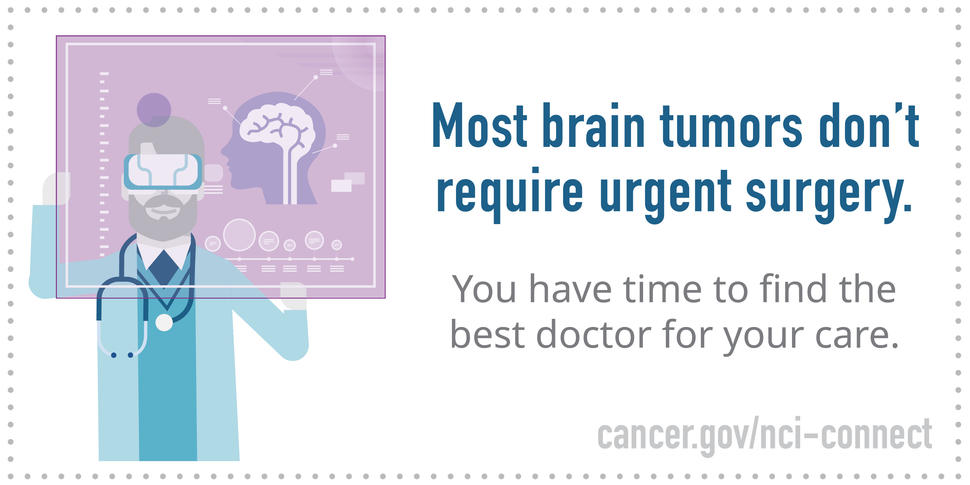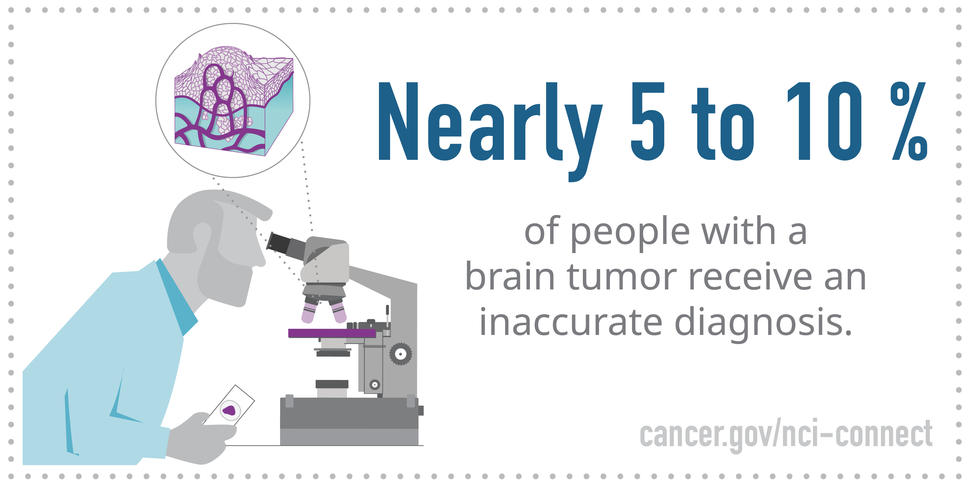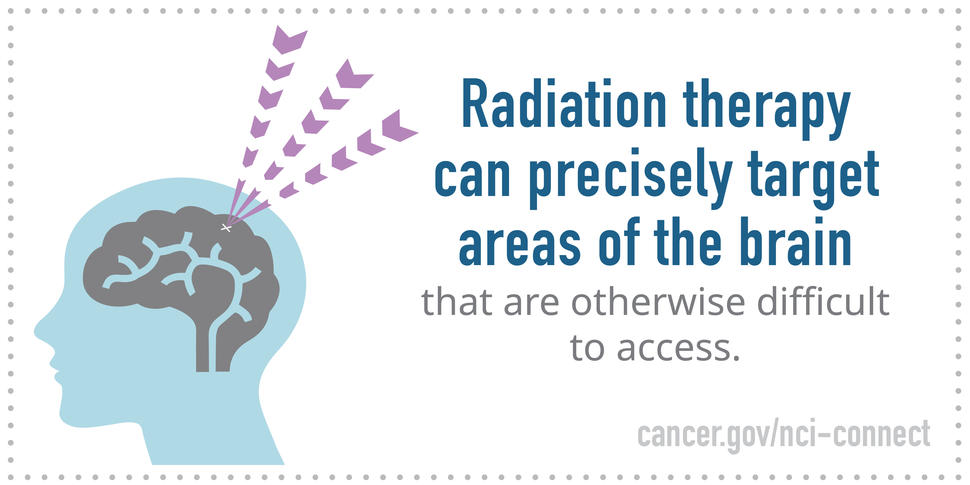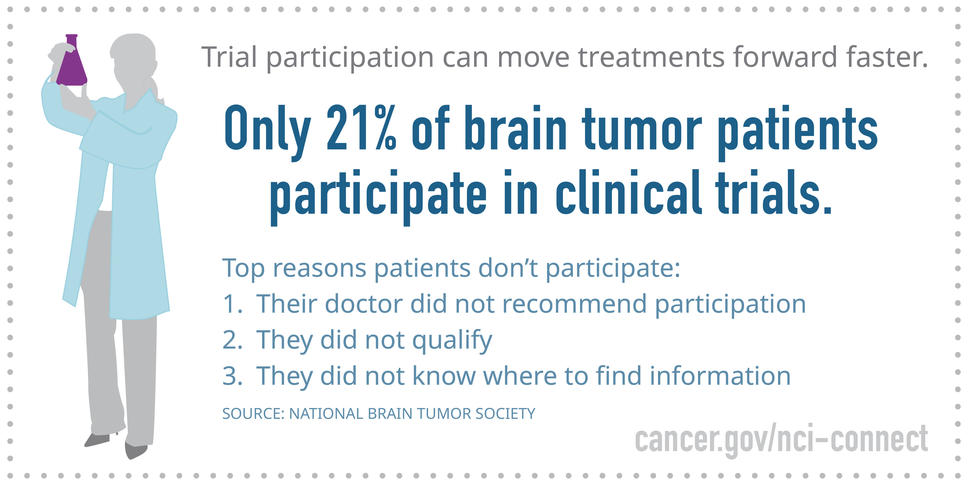How Brain Tumors Are Diagnosed and Treated
, by Kristin Odom, NCI-CONNECT Communications Editor
Share our brain tumor treatment information and resources to help those living with a brain tumor.
Primary central nervous system (CNS) tumors begin in the brain or spinal cord. About 24,000 people are diagnosed each year with a primary CNS cancer. A brain tumor diagnosis can be very isolating but finding a doctor who has experience treating brain tumors can give you peace of mind when making treatment decisions. You can share our treatment information and resources to educate people living with a brain tumor and improve care.
Surgery
Surgery is often the first treatment to safely remove as much of the brain tumor as possible and to get an accurate diagnosis. Finding an experienced neurosurgeon is especially important for rare tumors and to remove tumors in so-called "eloquent" areas of the brain and brainstem. Experienced neurosurgeons also have skilled colleagues to refer patients for further treatment, if needed.
Questions to ask your neurosurgeon:
- Do you treat brain or spine tumors?
- Do you treat tumors like mine? For rare brain or spine tumors, do you have experience treating tumors in this area?
- How many patients with my tumor type do you treat in a year?
- Are there other neurosurgeons I can talk to?
- Whom should I see for a second opinion?
Resource: Neurosurgeon shares tips to help patients find specialized care >
Pathology
A neuropathologist is a doctor who examines brain and spine tumor tissue to make a precise diagnosis. Neuropathologists first define the tumor by the specific changes they see under a microscope. Then, they use advanced molecular technologies to more precisely classify the brain tumor to help determine the best treatment for an individual.
Questions to ask your doctor about your diagnosis:
- What does my diagnosis mean?
- How often is this diagnosis seen?
- Can we talk to others who may have experience with my diagnosis?
Resource: Why a precise diagnosis is vital to treat brain and spine tumors >
Chemotherapy
Chemotherapy is a cancer treatment that uses drugs to stop the growth of cancer cells, either by killing the cells or by stopping them from dividing. Chemotherapy can be considered before or after surgery, depending on the brain tumor type and grade. See the cancer drugs approved by the Food and Drug Administration (FDA) for use in brain tumors.
Questions to ask your doctor about treatment:
- What treatment options are available?
- What is the standard treatment for my tumor type?
- Are there clinical trials available for my tumor type?
- What are the benefits and risks of each treatment option?
Resource: Q&A: Understanding brain tumor treatment, impact, and research >
Radiation Therapy
Radiation therapy is a type of cancer treatment that is often used to treat brain tumors. It uses beams of intense energy to kill cancer cells and shrink tumors.
An advanced radiation treatment for people with brain tumors is called pencil beam technology. It uses a precise proton beam to target the unique shape of individual tumors and does not affect surrounding healthy tissue. It helps treat tumors close to critical structures like the brainstem.
More questions to ask your doctor about treatment:
- How long will I be on the treatment?
- What are common treatment side effects?
- Are there long-term effects of the treatment?
- Where will I receive treatments?
Resource: How advances in radiation therapy are improving care for brain and spine tumors >
Clinical Trials
Some clinical studies test new treatments like a new drug or medical therapy. These studies are called clinical trials. Other clinical studies do not involve testing new treatments. They are designed to gather information about a disease.
Clinical trials involve people and are the final step in a long process that begins with research in a lab. Before any new treatment is used in people, researchers work for many years to understand its effects on cancer cells in the lab and in animals. They also try to figure out the side effects it may cause.
Questions to ask about clinical trials:
- What is the purpose of the trial?
- What phase is the clinical trial?
- Why would the clinical trial treatment be better than the standard treatment being used now?
Resource: Clinical research nurse shares what to know about clinical trials >
We encourage you to share these resources to help people with a brain tumor understand treatment and care options.



